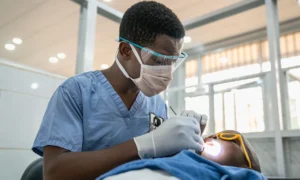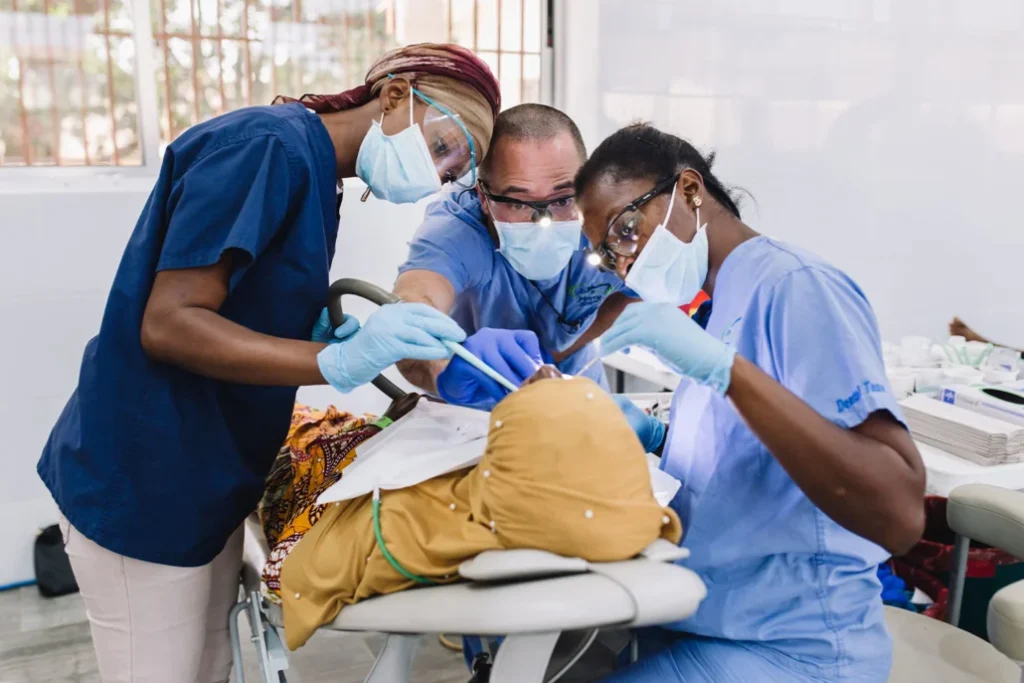The African Dental Students Association (AfDSA) has voiced deep concern over the deteriorating state of dental education across the continent, citing chronic underfunding and outdated infrastructure as major obstacles to quality learning and professional development. The group made its position known during a recent regional convention, where student leaders from multiple African countries gathered to discuss the future of dentistry and oral health in Africa.
Dilapidated Facilities and Lack of Modern Equipment
According to the AfDSA, many dental schools across Africa operate with outdated tools and severely inadequate teaching facilities, leaving students ill-equipped for modern dental practice. From malfunctioning dental chairs to lack of access to simulation labs and digital imaging technology, the students say these conditions significantly hinder hands-on learning and compromise the quality of dental training.
“In several institutions, we are still using tools from the 1980s to train students meant to serve the 21st-century patient,” one student representative said. “How do we expect excellence when the environment itself is broken?”
The association pointed out that in countries with rising population growth and increasing oral health burdens, producing a well-trained dental workforce is critical. However, they argue that governments and stakeholders have failed to prioritize dental education within broader healthcare funding frameworks.

Inadequate Funding Undermines Training
The AfDSA emphasized that insufficient financial investment is the root of many of the challenges faced in dental education. The group noted that many dental schools receive little to no capital for upgrading facilities, purchasing modern training tools, or supporting students with bursaries and grants.
This funding gap has led to overburdened classrooms, shortage of clinical materials for students, and demotivated faculty members. In some cases, students reportedly purchase basic clinical materials out-of-pocket to meet their training requirements, further straining families already grappling with economic hardships.
“We’re not asking for luxury,” another delegate stated. “We’re asking for the bare minimum to become competent, ethical, and safe dental professionals who can contribute to Africa’s health systems.”
Calls for Curriculum Reform and Digital Integration
Beyond infrastructure, the AfDSA also criticized the continued reliance on outdated curricula in many institutions. According to the association, many dental programs have not been revised in decades, failing to reflect new advancements in dental technology, research, and global best practices.
The students called for urgent reforms that will integrate digital dentistry, teledentistry, and evidence-based practices into course structures. They also urged institutions to embrace continuing professional development and lifelong learning opportunities for both students and faculty.
“Dental education must evolve with science,” said a Ghanaian student leader. “We can’t keep teaching from obsolete textbooks while the world is embracing AI-assisted dentistry and 3D printing.”
Broader Implications for Oral Health in Africa
The AfDSA warned that the current state of dental education has far-reaching implications not only for students but for public health in general. With inadequate training, future dentists may be poorly prepared to manage oral diseases, which are on the rise across Africa. This could exacerbate the already limited access to dental care, especially in rural and underserved areas.
The World Health Organization estimates that oral diseases affect nearly 3.5 billion people globally, with untreated dental caries among the most common health problems. In many African countries, however, there is an alarming dentist-to-population ratio — often as low as 1 dentist per 50,000 people or more.
The students stressed that only by improving dental education can the continent hope to meet future oral health needs, reduce disease burdens, and empower communities through preventive care and early intervention.
Appeal to Governments and Donors
In conclusion, the AfDSA appealed to African governments, international donors, and private sector stakeholders to prioritize investments in dental education and training. They urged national ministries of health and education to allocate more funding for dental schools, while also calling on global health organizations to support initiatives aimed at upgrading facilities and fostering innovation in teaching.
“We must invest in the next generation of dental professionals if we want to build a healthier Africa,” the association declared. “Ignoring the current crisis in dental education will only deepen health inequalities and prolong the suffering of millions.”
The association plans to publish a comprehensive policy paper with recommendations on how to transform dental education across Africa. The document is expected to be presented to key stakeholders later this year.







